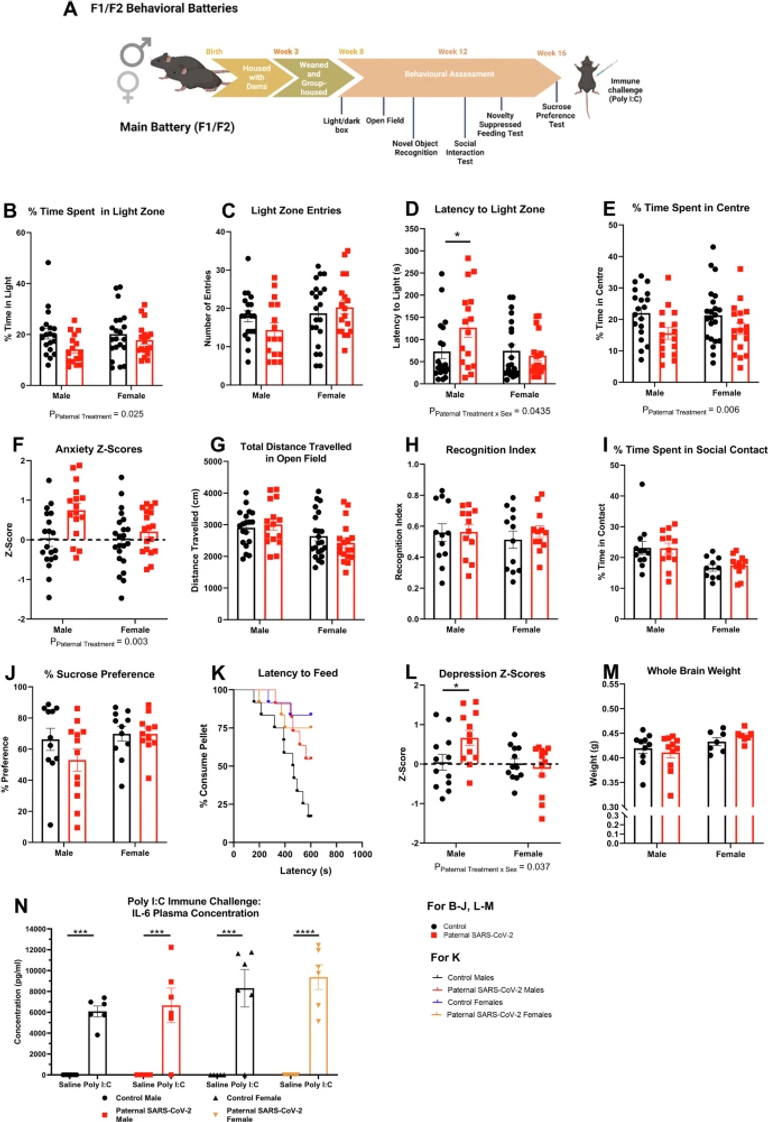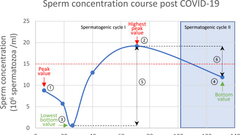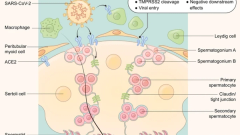ABSTRACT
Given that the SARS-CoV-2 virus, and the COVID-19 pandemic, constitutes a major environmental challenge faced by billions of people worldwide, we investigated whether paternal pre-conceptual SARS-CoV-2 infection has impacts on sperm RNA content, and intergenerational (F1) and transgenerational (F2) effects on offspring phenotypes. Using an established mouse-adapted SARS-CoV-2 (P21) preclinical model, we infected adult male mice with the virus, or performed a mock control infection, and bred them with naïve female mice four weeks later, when males were no longer infectious. Here we show that offspring of infected sires display increased anxiety-like behaviors. Additionally, the F1 offspring have significant transcriptomic changes in their hippocampus. Various sperm small noncoding RNAs, including PIWI-interacting RNAs, transfer-derived RNAs and microRNAs, are differentially altered by prior paternal SARS-CoV-2 infection. Microinjection of RNA from the sperm of SARS-CoV-2 infected males into fertilized oocytes leads to a phenotype resembling that of the naturally born F1 offspring, supporting the interpretation that sperm RNAs are contributing to the outcomes of our paternal SARS-CoV-2 model. Therefore, this study provides evidence that paternal SARS-CoV-2 infection impacts sperm and affects offspring phenotypes. These findings have public-health implications and inform further research in males affected by COVID-19, and their offspring.



